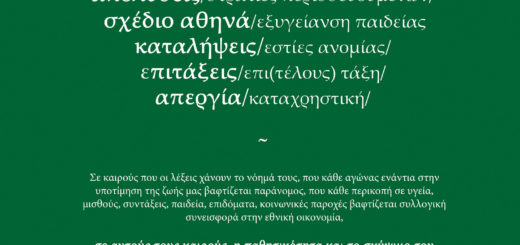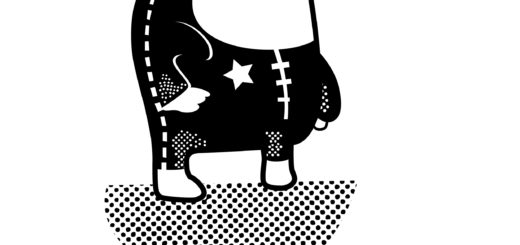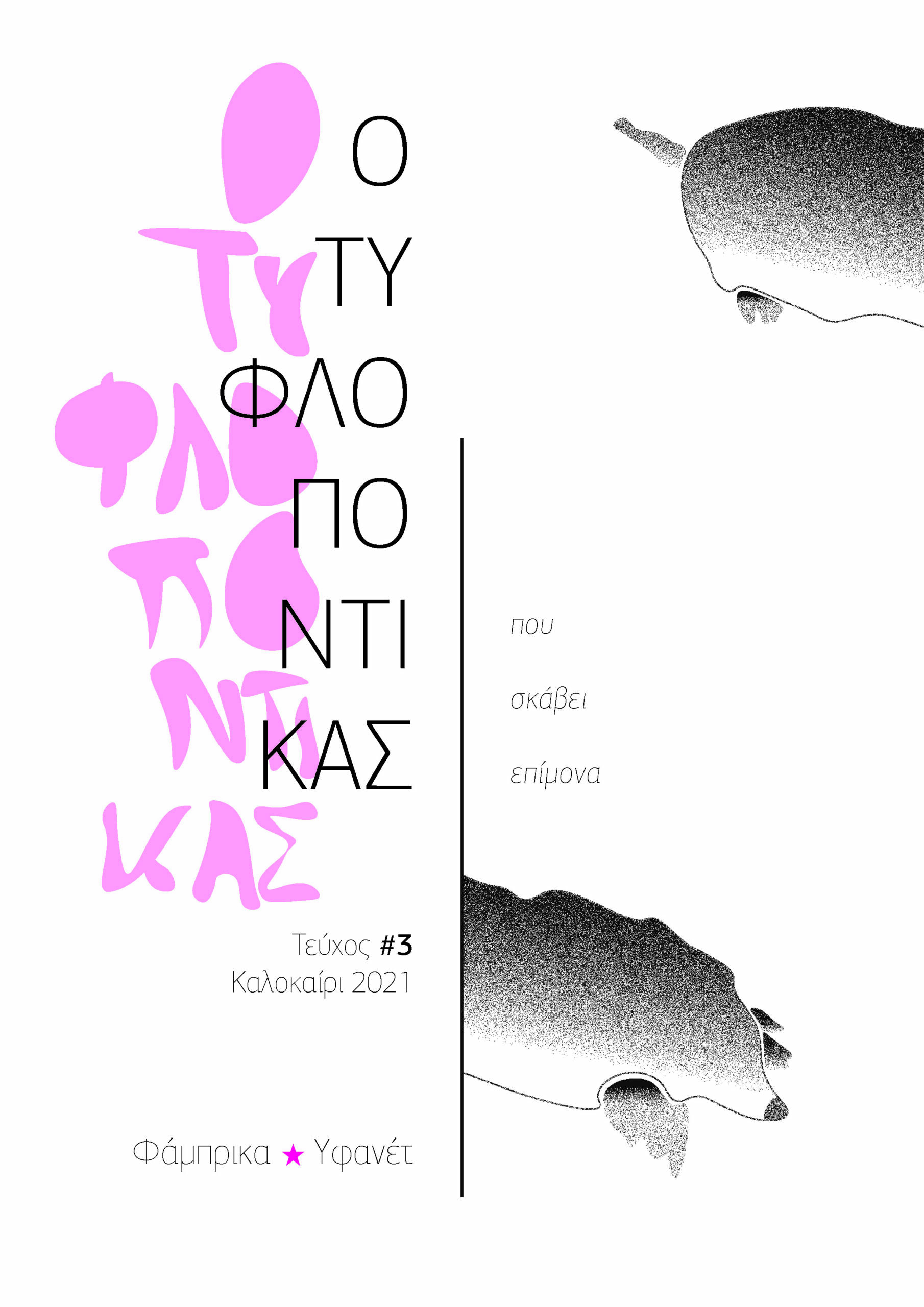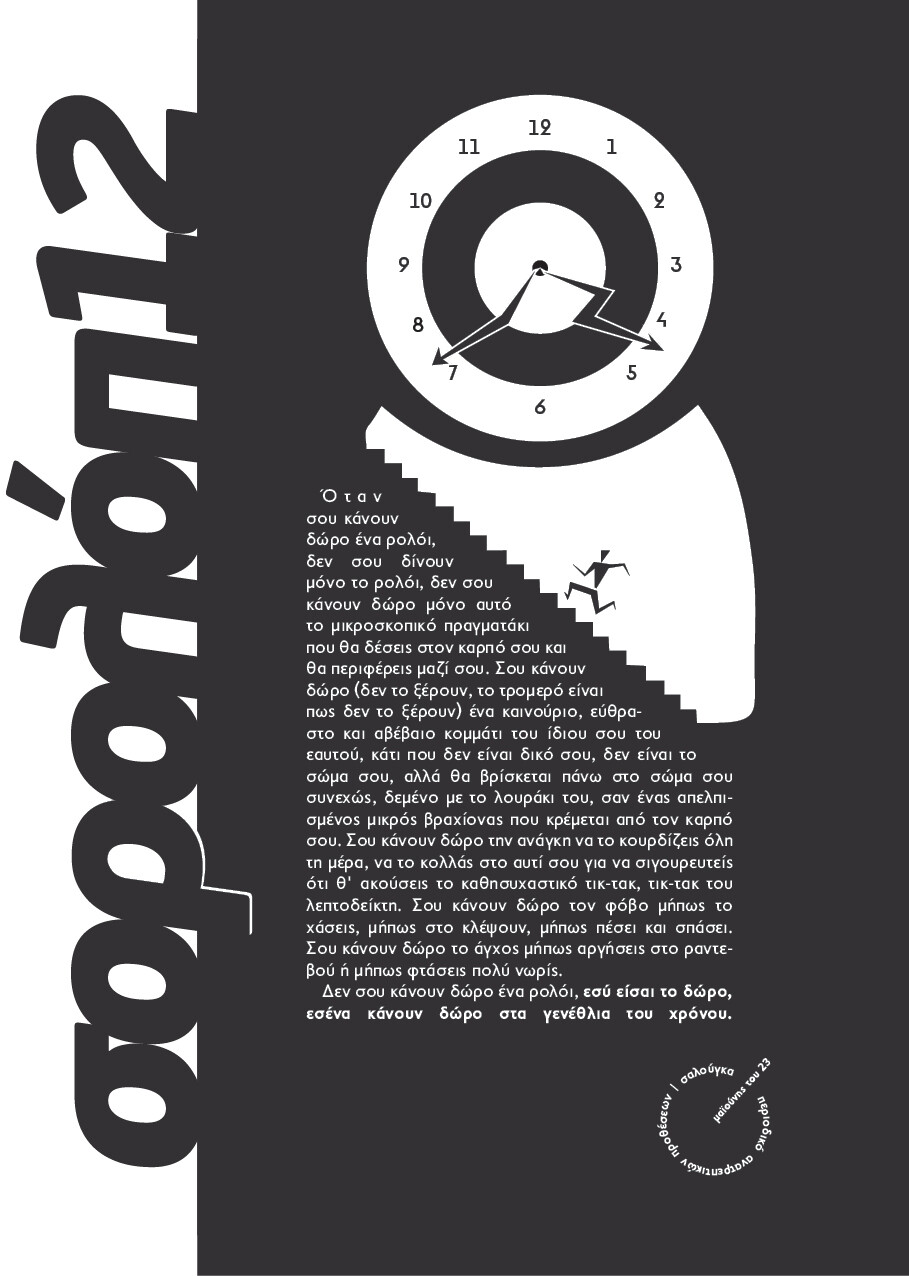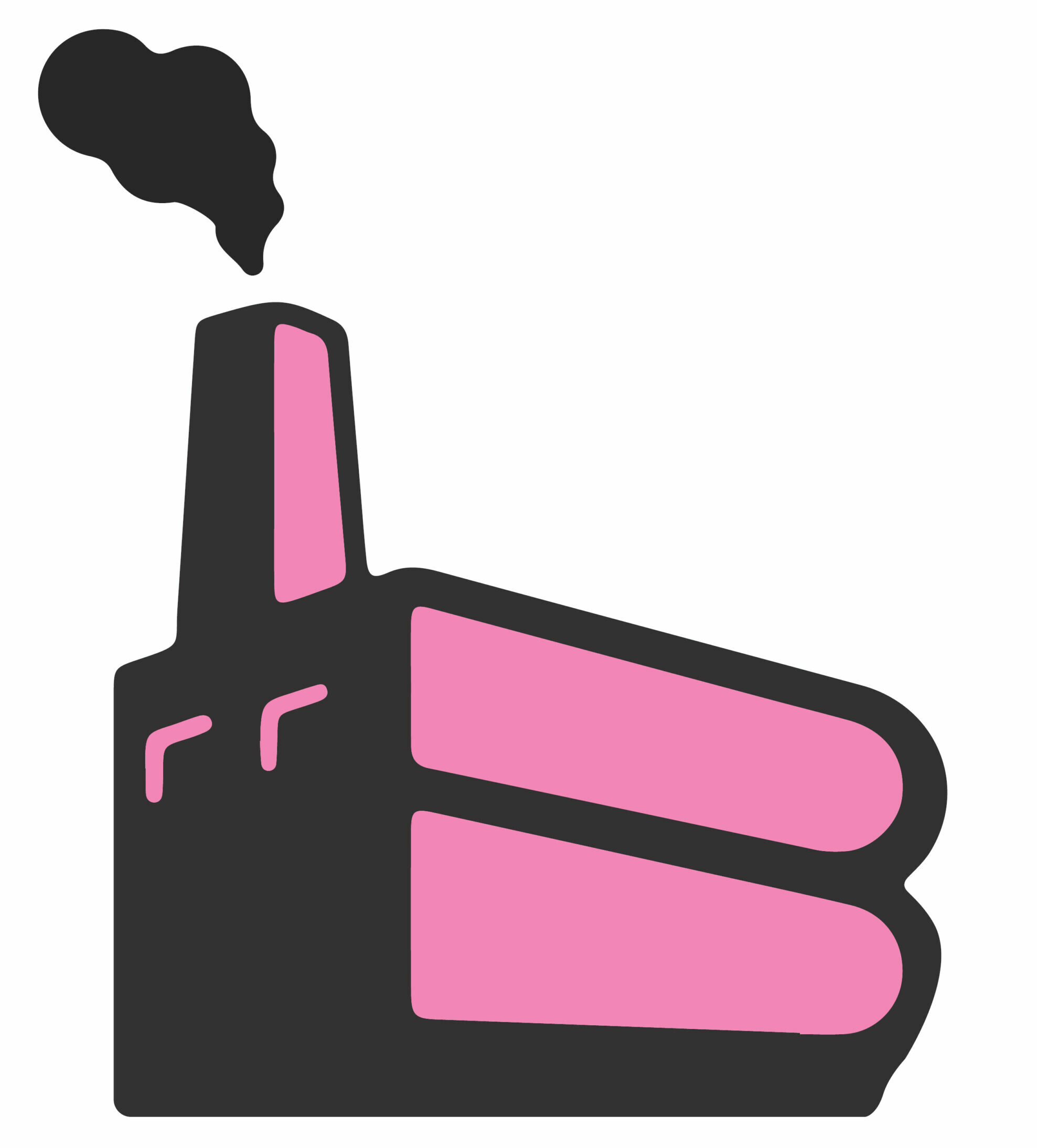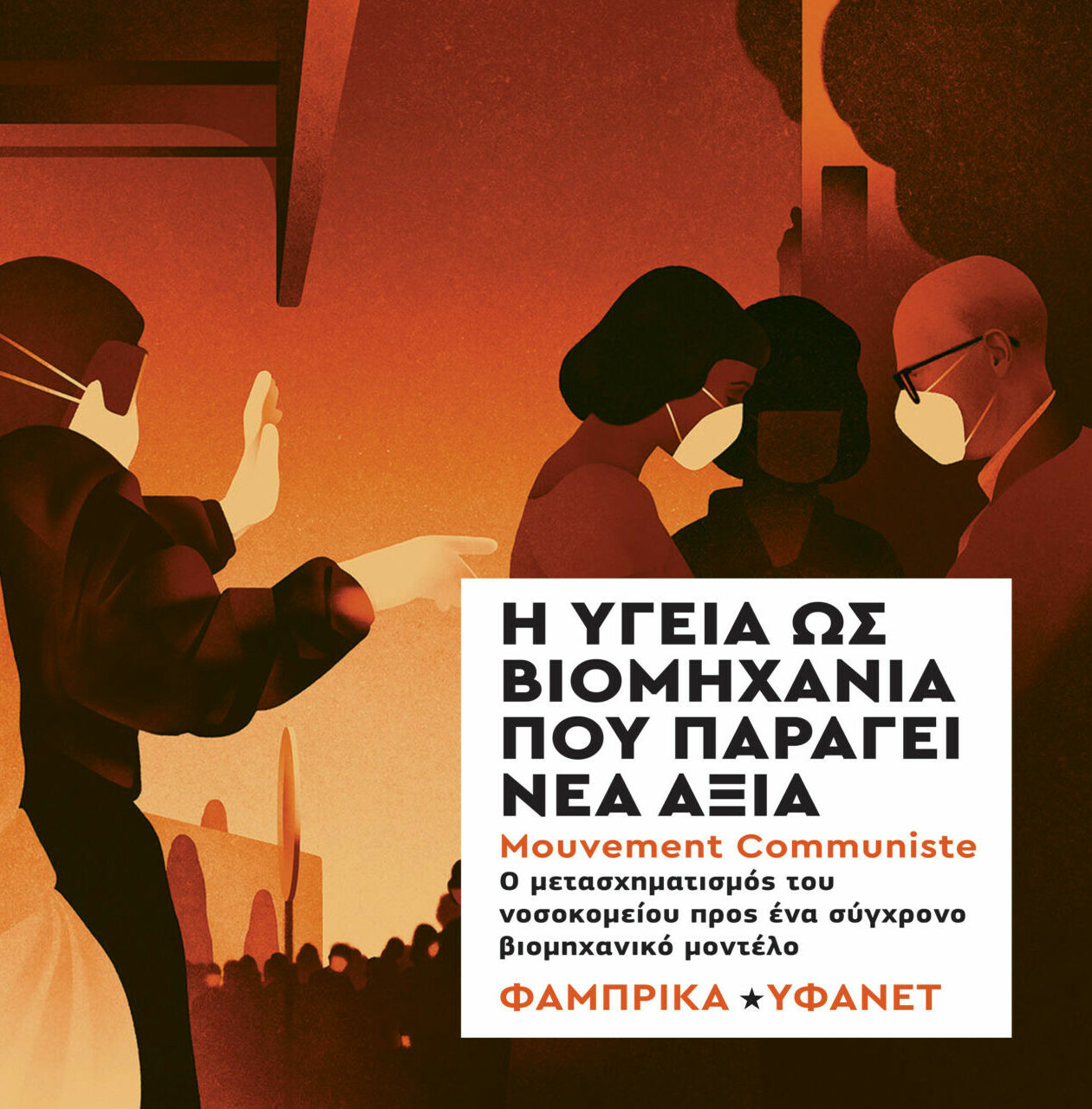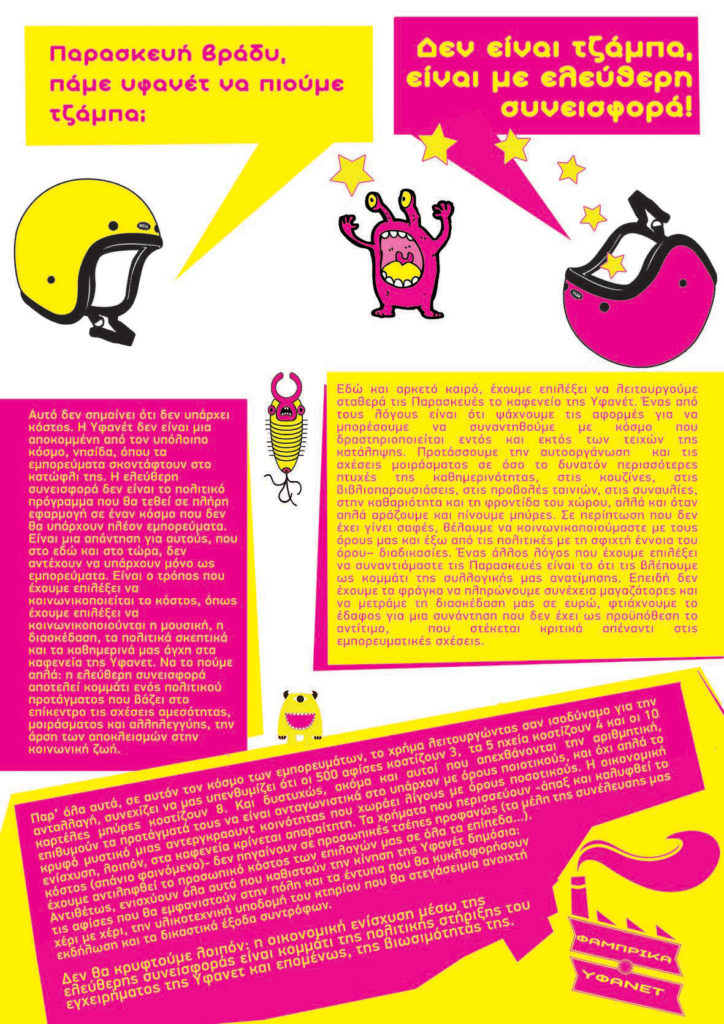SA 8.6 11:30 at square of st. Fanourios | Protest against the nation
AGAINST NATIONAL DREAMS
NO LOVE FOR THE HOMELAND
A protest against the nation. But what is the nation?
Nation is the history. The glorious battles, our great ancestors, the sacred heritage, the greek pure blood. It’s all these information that we have been taught to consider as our “own”, without ever questioning them, criticizing them, checking if they are right or wrong.
Nation is the fatherland. The monuments that we “sell” to the tourists, the statues in the squares, the streets that are being named after “our” lost homeland. It’s a place that is marked, to remind to us that we should feel lucky that we were born in this side of the borders.
Nation is the school. The school parades and small flags, the national holidays with their poems, the boost of the national morale by the teachers, the discipline, the silence and the security. It’s the prime area where nationalism is born and grows, shaping the consciences of tomorrow.
Nation is the religion. The clergy that take the streets to protest for the name of Macedonia, the sacred monastery and the greek-orthodox culture. It’s all these institutions that “sell” hope and remission of sins, present themselves as the guarantors of a peaceful afterlife, while filling the people with fear and guilt in the present.
Nation is the family. The father figure, the affectionate pure-mother and the obedient children. It’s the model that wants to limit all social relationships within the four walls of the family home and its sunday lunch.
Nation is normativity. The boys and girls that preserve the race, the hate for homosexual people, the pervasive sexism. It’s all these characteristic of a world that doesn’t allow for diversity and wants to limit sexuality within the dominant standards.
Nation is the army. The devotion to border protection, the angry shouts and marching orders, the discipline, «the mother and sisters that we have to protect from the foreigners», the army boots that are that hitting the ground. It’s this «essential phase» in the life a boy when he becomes a man, which stinks of machismo and resignation.
Nation is the hate for the others. For the immigrants, for those who were born a few kilometers away, for those who don’t speak the same language. It’s all these people that we learned to hate without even knowing them.
Nation is the stolen time. The time that we have to offer to work, in order to support the local economy, the sacrifices that we are being called to do, the dreams for development. It’s an everyday life of pressure, committed to the highest goal of national prosperity.
Nation is the bodies of the immigrants lying in the Aegean Sea and the borders of Evros, the bullets of the bosses in the fields of Manolada, the concentration camps, the «random» deaths in the police department of Omonoia. Nation is to work for less money because the homeland needs it, to curse the albanians, the blacks and the faggots or to want to make them greek and productive, to criticize abortions because Greece is “slowly dying” due to low fertility, to form popular fronts and parties against fascism and at the same time do nothing for all those who don’t fit to the figure of the citizen. Nation is the concepts and the fantasies, the relations and the myths, the language and the laws, the citizenship and the lack of it, it is a way for this world to exist and balance upon dead bodies, human labor and closed borders.
Nation is this community that comes to erase the communities of those who struggle, blunting the class contradictions and concealing the conflicts within the society, in order to emerge from their ruins, while convincing us that the bosses and those who work have the same interests.
We are not feeling any love for the nation.
Because we are making our own history, with our daily, small or large, acts of resistance.
Because our lands are not the ones where we have been born and raised, but the places that we meet in order to struggle, the places that we will create in the future, even if we have not imagined them yet.
Because our relationships cannot be limited to the people who raised us. They extend a lot further, they embrace strangers and seek out for a new, warm glance.
Because our desire does not fit in molds. It doesn’t seek social acceptance it doesn’t bow before what is consider «normal». On the contrary, it sweeps inhibitions, fears and hesitations.
Because the others, the foreigners, the strangers, are not a threat, but those who we will support us tomorrow, and who will receive our support.
Because we want to use time it in our behalf, and not against us. We will grab the hands of the clock and turn them upside down if needed.
What nation? What country? What love for our country? What nostalgia?
If we are feeling nostalgic about something, it is not for the glorious past that requires our national pride; we are feeling nostalgia about the things that we haven’t done yet, the struggles that we haven’t given yet, the excesses we haven’t done yet, the moments we haven’t yet created, the dreams that are still pending. If there is any nostalgia for the past, it belongs to the moments that we looked at each other with sincerity, stood side by side, smiled, even for a bit, felt stronger, less defeated, and capable for anything.

